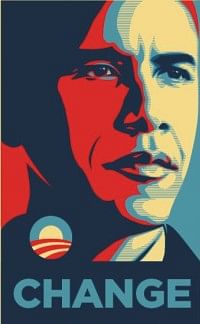Obama, the Unifier

HERE'S news: this weekend I heard Rahm Emanuel, the new White House chief of staff, publicly -- even proudly -- call himself a "liberal." It was yet another indication that Barack Obama represents a tidal change in American politics.
In place of a generation's worth of individualistic thinking, Obama brings a renewed commitment to another facet of our history: our belief in the ideal of unity, common purpose and community.
Yes we were pioneers, heading ever west with little more than an axe, a rifle and a bible. But we could not have survived in the virgin woods or on the unplowed prairies without each other.
Everybody in the capital is comparing Obama to Abraham Lincoln. But the more recent -- and illuminating -- comparison is Ronald Reagan. In 1981, Reagan came to town vowing a massive shift in philosophical thinking. "Government isn't the solution," he declared. "Government is the problem." Individual striving was the answer.
It was a message that resonated deeply at a time when voters felt they had lost touch with some fundamental American values; that government had grown too large, corrupt and incompetent; that taxes and bureaucracy were crushing creative freedom. They saw Reagan as the iconic Western cowboy, who meant what he said (even if he was a movie actor). And majorities of voters remained loyal to him, ignoring criticism from the national media.
A genial man, Reagan reached out privately to his political adversaries as he arrived in town. Even before his inauguration, he held a dinner at the old F Street Club for the city's reigning (and about to be deposed) Democratic establishment. He did not win them over, but he sent out a signal that he respected their history.
Obama did the same thing the other day, at a private dinner with conservatives.
As he wended his way here to Washington by train on Saturday, and in his speech Sunday at the Lincoln Memorial, Obama has repeatedly and eloquently called forth the theme of common purpose.
And he has done it in the American grain, not by asserting the triumphs of the welfare state (such as it is), but by invoking images of good wars and epic crusades: the American Revolution, the Civil War, the Second World War, and the Civil Rights struggle.
He is mixing the fife and drum with the "mystic chords of memory" and the music and passion of Martin Luther King Jr. All are about eras in which Americans finally, and not automatically, came together to achieve a common goal, overcoming boundaries of race and region.
Emanuel's declaration came at a concert sponsored by The New Republic magazine. Preceding music by Yo-Yo Ma at the Harman Center, Emanuel spoke along with Rep. Barney Frank and Larry Summers, who will be Obama's chief economic advisor. All three stressed the role of government in helping the country and the world out of the economic mess it finds itself in.
Marty Peretz of the New Republic summarised the liberal view of economic history: that scientific, humane thinking had rescued capitalism from its own excesses before World War I with Woodrow Wilson, and again in the 1930s with Franklin Roosevelt. Now, he said, it was time for a third wave and another rescue-by-government.
And that is the Obama surround. No, government isn't the only answer. And "government" and community isn't the same thing when Big Money owns the government. And Obama will make mistakes, and he will make compromises, and Democrats will be at each other's throats, and Republicans will grow recalcitrant, and the public will grow impatient -- and there are a hundred other caveats I could mention.
But at least Obama is thinking big, as Reagan did. The new president (far more than either the Bushes or the Clintons) wants to represent and foster fundamental change in American history.
If he is lucky, the voters will stick with him when the going gets rough. They stuck with the Gipper because he stood for something basic. Obama has no nickname, but he's aiming for a similar role.
(c) Newsweek International. All rights reserved. Reprinted by arrangement.

 For all latest news, follow The Daily Star's Google News channel.
For all latest news, follow The Daily Star's Google News channel. 



Comments